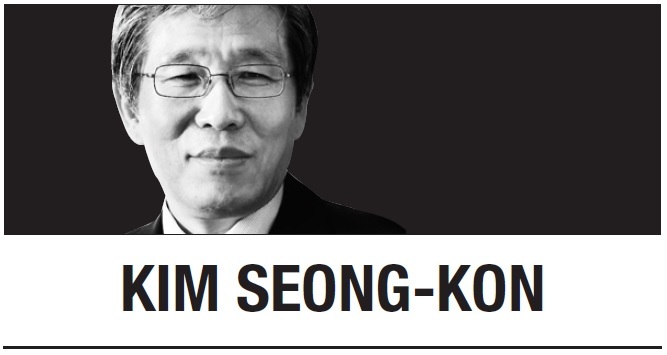
Indeed, many American novels, films, and television shows have depicted the clandestine fear of Americans that someone or some invisible organizations may try to surveil or manipulate their lives. The Hunger Games, The Truman Show or Person of Interest are good examples. In those works, sometimes, secret government agencies spy on you and other times, someone is subtly controlling you.
In “The Truman Show,” for example, the protagonist Truman does not realize that he is the main character in a reality show broadcast live worldwide, 24/7. All through his life, Truman has lived in Seahaven Island. In fact, however, it is nothing but a huge TV set where all the villagers are actors. Christof, the show’s creator and executive producer, intricately controls and manipulates Truman’s life to entertain his mass audience. Truman is appalled at finding that people have been watching his everyday life on TV live.
During the McCarthy era when Communists and anti-Communists clashed in the US, American novels and motion pictures produced superb works that delineated the uniquely American dread that Tanner describes. Richard Matheson’s 1954 futuristic horror fiction, “I Am Legend,” brilliantly captures the social milieu at that time. In the novel, a deadly virus turns people into vampire-like monsters, which is a powerful metaphor of contagious ideologies such as Communism. Due to the pandemic, the protagonist Robert Neville finds that he is the only civilized human survivor and all others have turned into monsters.
In fact, however, the predominant monsters think that Neville is a threat to them who must vanish from a new civilization of theirs. Later, Neville realizes that he is part of a virtually extinct species in the new world. The novel’s cautionary message is that ideologies, like contagious viruses, can spread and turn people into monsters who attack others. In the barbaric, bleak world, civilized humans must fade away because the world no longer belongs to them.
The 1956 Hollywood movie “Invasion of the Body Snatchers” also well illustrates the American anxieties Tanner so perfectly captures. In the movie, aliens invade a small town in California and abduct people, leaving identical-looking replicas instead. Gradually, the villagers realize that their family members are imposters. In the film, as soon as you fall asleep, aliens will take over your body and soul, leaving a replica instead. The movie admonishes us that if we are not vigilant, we will be brainwashed by foreign ideologies such as Communism and become soulless replicas of ourselves. The scary thing is that you never know who the replicas are in your family or society.
Richard Condon’s 1959 novel, “The Manchurian Candidate,” warns us of the possibility that our political leaders may have been brainwashed and hypnotized by Communists. In the novel, Communists took a few American prisoners of war to Manchuria, hypnotized them during the Korean War, and then released them. Upon returning to the US, one of the prisoners, Sgt. Robert Shaw, becomes a sleeper agent. When activated by his KGB handler, who is his mother, he plays a crucial role in a plot to elect a puppet US president controlled by the Soviet Communists.
Fortunately, Shaw fails, and America is safe from Communists’ attempt to control her. This bone-chilling novel cautions us that puppet politicians controlled by our enemies can clandestinely take over our country and lead the nation in the wrong direction. It is unnerving to think that our enemies could be just offstage pulling the strings the entire time and we are not even aware of it.
“Mockingjay,” a 2010 futuristic novel by Suzanne Collins, opens our eyes to the fact that a revolutionary leader could be even worse than the dictator he or she has ousted. In this last installment of “The Hunger Games” trilogy, President Coin, the rebel leader, turns out to be no better than the dictator President Snow. She does evil things for her political vendetta in the name of justice. President Coin pretends that she is a savior and liberator, and yet she turns out to be merely another tyrant. That is why the protagonist Katniss Everdeen, sent to kill the dictator Snow, instead kills Coin at the execution site.
We can learn valuable lessons from these tales of American fear and dread because it can happen to any country. In order not to be brainwashed and manipulated by false ideologies, we should be wide-awake and constantly on alert.
Kim Seong-kon
Kim Seong-kon is a professor emeritus of English at Seoul National University and a visiting scholar at Dartmouth College. -- Ed.


















![[Today’s K-pop] Treasure to publish magazine for debut anniversary](http://res.heraldm.com/phpwas/restmb_idxmake.php?idx=642&simg=/content/image/2024/07/26/20240726050551_0.jpg&u=)